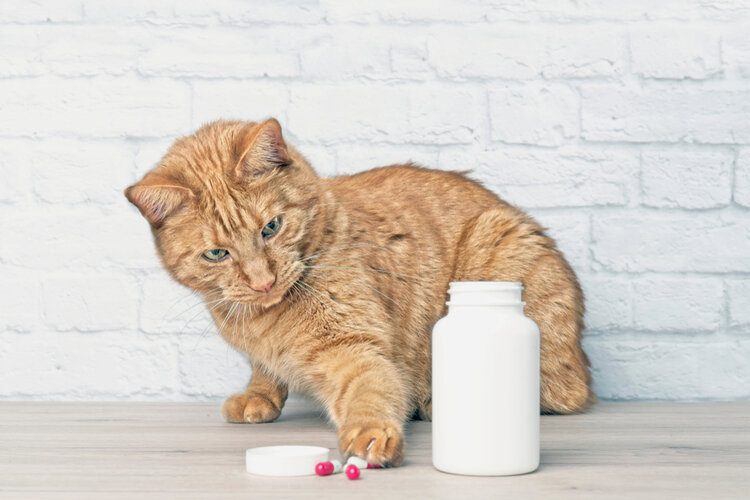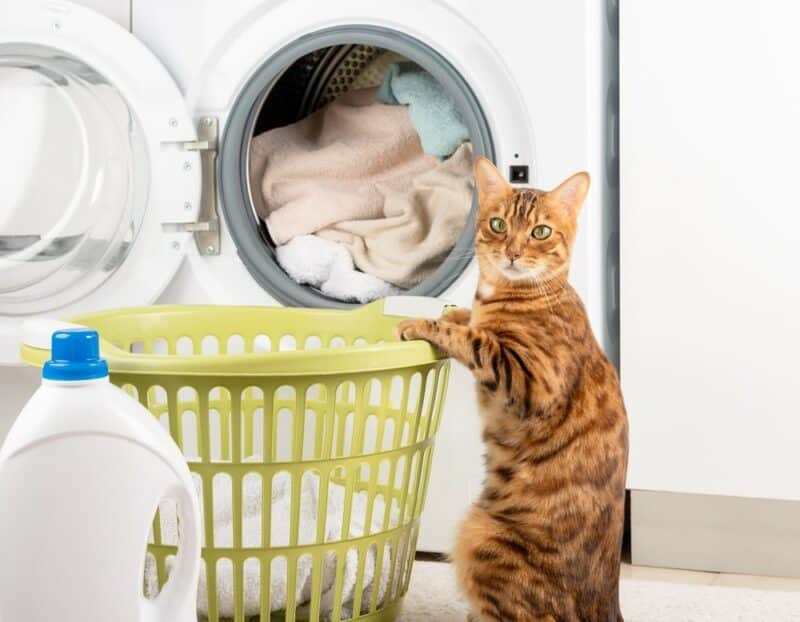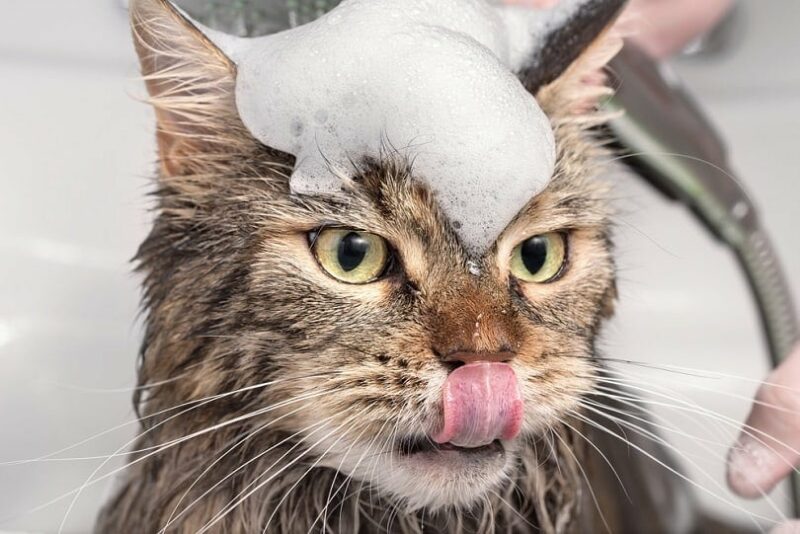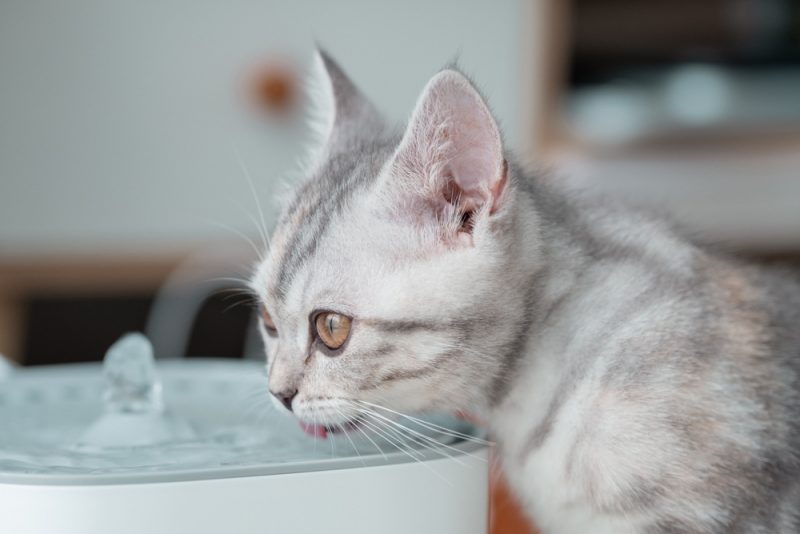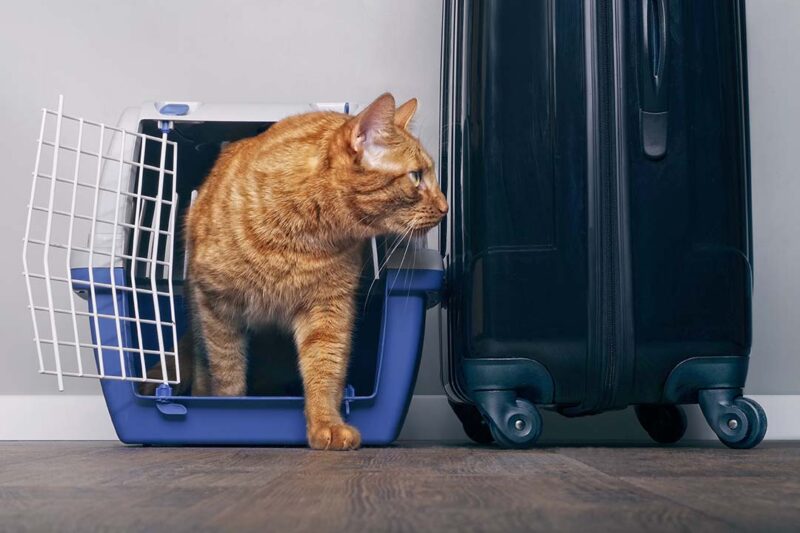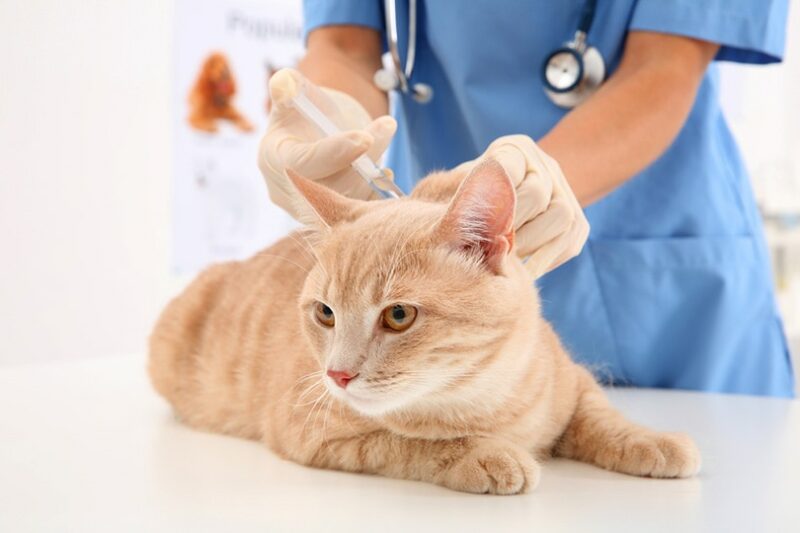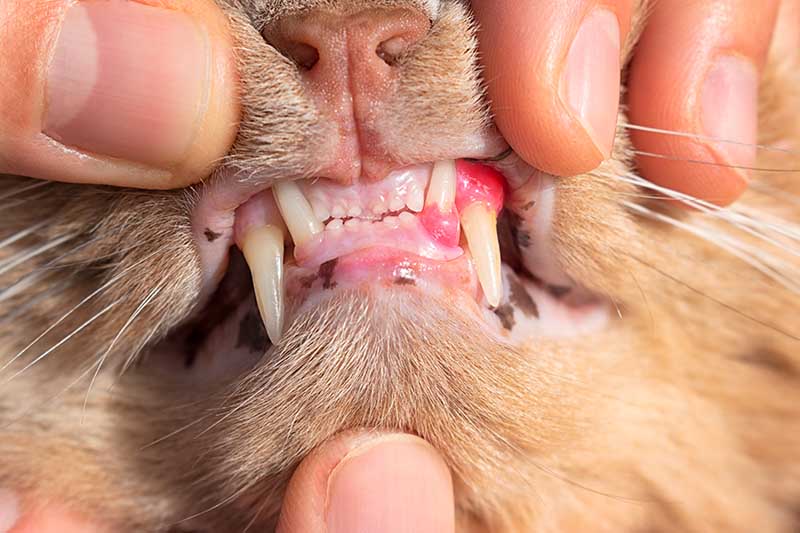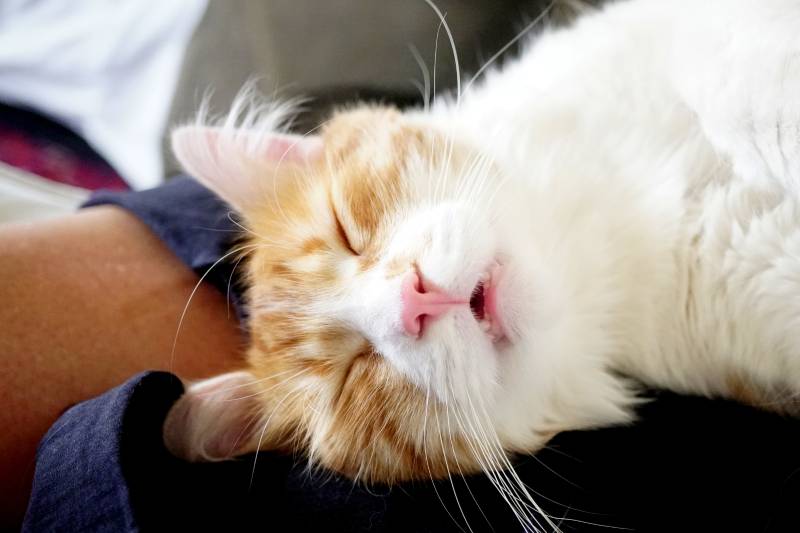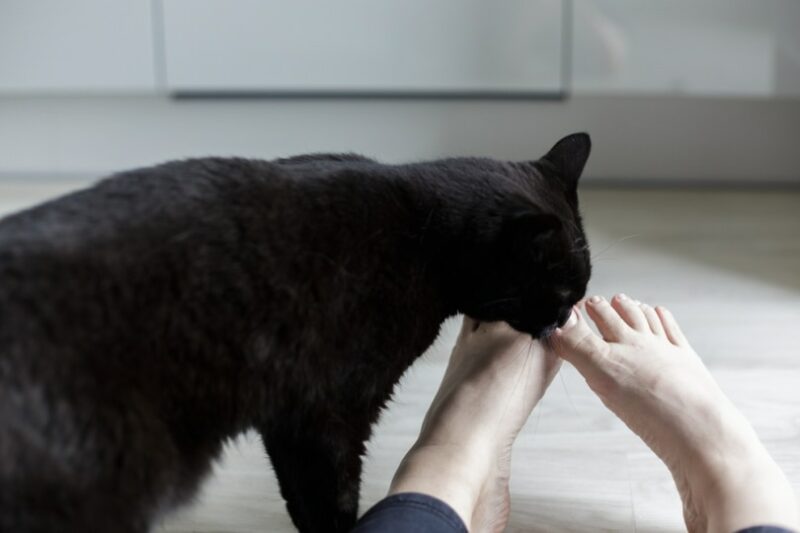In this article
“Benadryl” is the brand name of an over-the-counter, human-use antihistamine drug. The active ingredient in Benadryl is diphenhydramine hydrochloride. Benadryl is used to relieve symptoms of allergies such as hay fever (seasonal allergies), as well as itchy skin caused by insect bites, hives, and other causes of mild allergic reactions.
Antihistamine drugs work by taking over or occupying the histamine receptors in different organ cells. Histamine is produced and contained by a type of white blood cell called eosinophils. By blocking histamine receptors, antihistamine drugs prevent the manifestation of uncomfortable “allergy symptoms.”
Other common uses of diphenhydramine hydrochloride in humans are to prevent motion sickness and vomiting during long car rides or boat cruises.

Do Cats Get Allergies?
Yes, cats get allergies, and they are fairly common in cats. Allergies occur when the cat’s immune system overreacts or is hypersensitive to foreign substances called allergens. When the allergy develops, it is a reaction from the immune system trying to remove the allergen.
What is an Allergen?
Allergens are proteins external to the body; some common examples are pollen, grasses, molds, mildew, dust mites, the saliva of insects, hairs of other species, and food allergies. The condition for a substance to be considered an allergen is that the immune system has an overreaction or hypersensitivity to it.


Is Benadryl Safe for My Cat?
Benadryl (diphenhydramine hydrochloride) is considered safe for use in cats. However, take into consideration that the medical formulation is done for a human, and the average human’s weight is 12 or more times that of an average cat. Proper dose adjustments need to be made, and many other factors need to be considered.
In What Cases Can I Use Benadryl for My Cat?
- Very itchy skin
- Bug bites that cause a slight skin swelling or other allergic skin reactions such as red bumps
- Scabs around the head or neck
- Constant sneezing, wheezing, or coughing due to pollen or other air-born allergens
- Sometimes, they present clear-colored mucus discharge from the nose or eyes
- Light to mild vaccine allergic reactions
Can I Give Benadryl To My Cat as a Tranquilizer?
Like many other antihistamine medications, Benadryl has a mild sedative effect. However, Benadryl is not the first choice of medicine to tranquilize a cat. The veterinarian will prescribe an appropriate therapy in response to your cat’s specific case.
Sometimes, even behavioral modification techniques or training will be the right solution to calm your cat without needing medication. It is always wise to consult a veterinarian before medicating your cat.
If you need to speak with a vet but can't get to one, head over to PangoVet. It's an online service where you can talk to a vet online and get the advice you need for your pet — all at an affordable price!
Warning: Do Not Use Benadryl as a Sleeping Aid in Cats
It is not unusual for humans to use Benadryl or other antihistamines as a sleeping aid, but please be aware of the risk of Benadryl causing the opposite effect in your cat. In some cases, cats administered with Benadryl show hyper-excited behavior.
For that reason, it is not always recommended to use Benadryl as a sedative or relaxing aid for your cat. If you think your cat has trouble sleeping, consult a veterinarian regarding alternative treatments to relax your cat or help them get a better sleep.
Can I Give Benadryl To My Cat During Long Car Rides?
Humans use Benadryl as an anti-nausea or motion sickness medicine during long car trips. However, in the case of cats, Benadryl does not always work as an anti-nausea and anti-vomit or motion sickness medication.
A veterinarian might recommend using very low doses of Benadryl before a long ride to provide a light tranquilizing effect and prevent your cat from being nervous during the long car ride. However, there are various better alternative treatments to prevent and treat motion sickness in cats without the sedative effects of Benadryl.
Always consult a veterinarian before giving any medication to your cat, including over-the-counter and prescription medications. The veterinarian can suggest safe and effective drugs to ensure that travel with your cat goes smoothly.
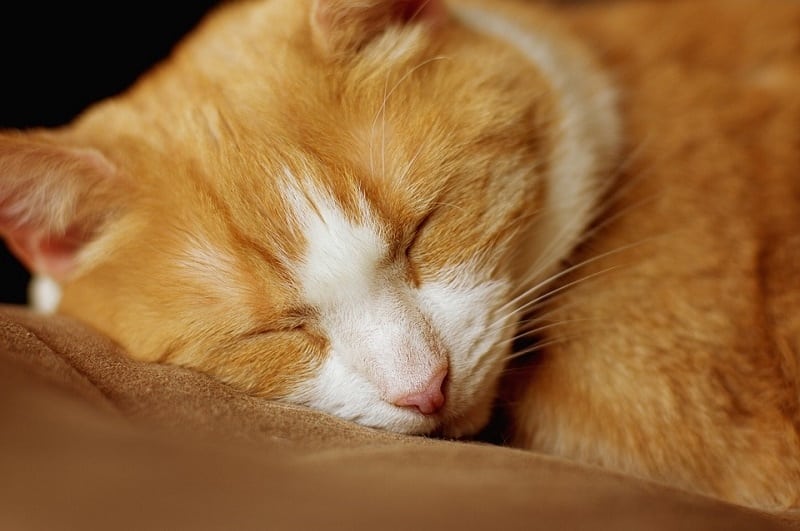
Can I Give Benadryl To My Cat During Airplane Flights?
Never give Benadryl to your cat during airplane flights; the levels of oxygen vary a lot during flights. If your cat is very sedated and their respiratory rate is low, they might not be able to breathe enough oxygen. If your cat gets too sedated during a flight, nobody in the cargo area can attend to them in the case of an emergency.
What Is the Recommended Dosage of Benadryl for Cats?
Benadryl can be safely given to cats at a dose of 0.45 mg/kg of body weight and up to 2.2 mg/kg of body weight. Depending on the specific case, the prescribed frequency is every 12 hours or twice a day and up to a maximum frequency of every 8 hours.
It is always recommended to consult a veterinarian for accurate case-specific treatment. It is essential to consider that while Benadryl can successfully treat the symptoms of allergies, it is necessary to identify the allergen causing the problem for a successful treatment. Without a clear idea of the actual cause of the allergy, the problem will remain.
For example, your cat can be itchy due to an allergic reaction to flea saliva. Giving Benadryl, you will only treat the symptom of “itchy skin; however, as long as the flea infestation is not properly managed, the problem will never disappear, and most likely, it will be further complicated.
In addition, more often than not, a secondary bacterial infection could have developed due to scratching. In that case, your cat will be given appropriate antibiotic medications for an average of 2 to 4 weeks. The veterinarian will treat your cat in a multi-approach way, managing the cause of the problem and the secondary problems that might have developed. Only treating a symptom is not enough.
On the other hand, your cat might have an allergic reaction to specific pollens that are only present during a few weeks of spring. In that case, a veterinarian might advise you on a Benadryl (or other treatment) for your cat that you could safely use every year once you recognize the timing and presentation.
However, there are always other factors to consider. For example, your cat might have lost or gained some weight or might be taking other medicines that interact with Benadryl; it is always safer to consult a veterinarian before medicating your cat.
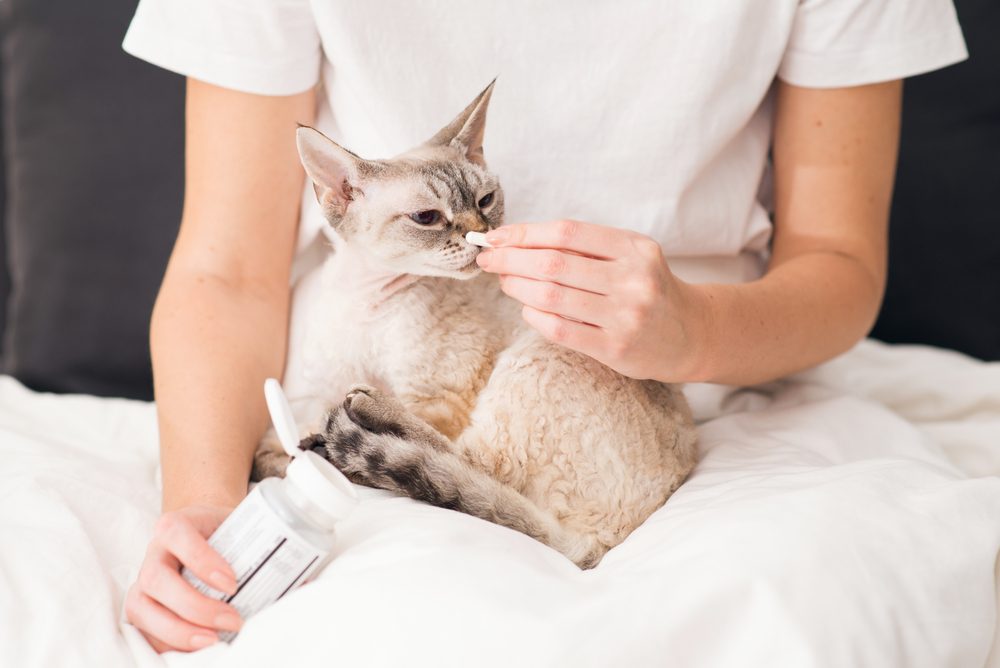
What Are the Side Effects of Benadryl?
Some cats may experience side effects from taking Benadryl. Cats generally show unwanted side effects within an hour after taking Benadryl.
- Sedation/drowsiness
- Agitation/excitement
- Dry mouth
- Increased heart rate
- Difficulty urinating
- Drooling
- Diarrhea
- Vomiting
If you notice that your cat looks sedated or presents any other signs during treatment with Benadryl, stop giving the medication and contact a veterinarian.

What Are the Signs of Overdose of Benadryl?
- Seizures or convulsions
- Coma
- Difficulty breathing
- Rapid heart rate
If you notice any of these signs, contact a veterinarian immediately and bring the complete information of what your cat was given. If possible, bring the package of medicine with you. This will aid the veterinarian in recognizing a Benadryl overdose from a severe form of allergy known as anaphylaxis.
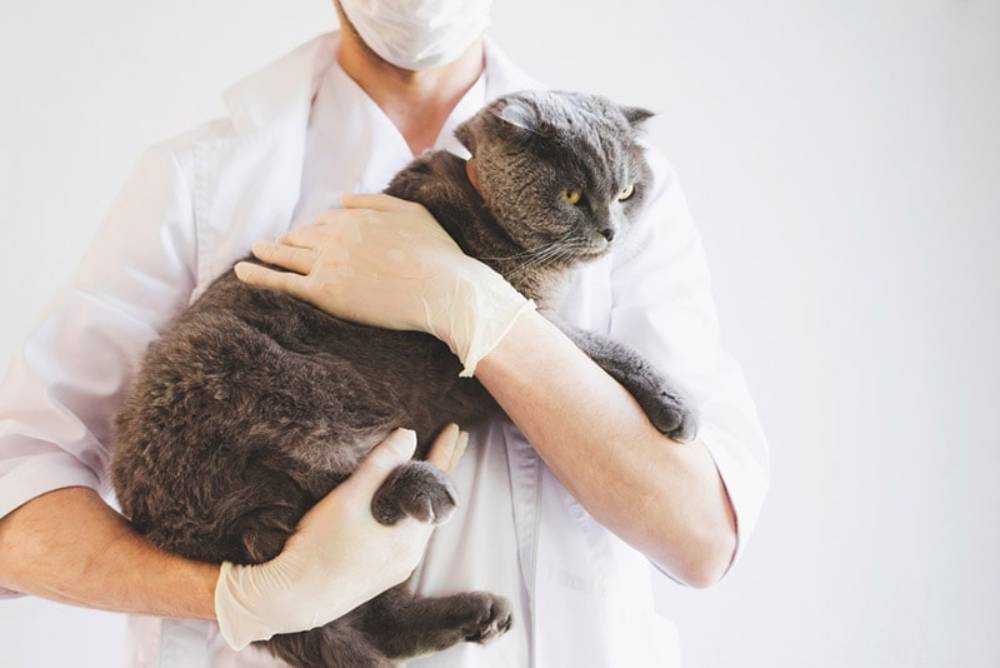
Warning: In Cases of Severe Allergic Reactions or Anaphylaxis, Immediate Medical Intervention is Necessary to Save Your Cat’s Life
Some severe forms of allergic reactions known as anaphylaxis can be presented in cats after bee or wasp stings, snake bites, etc. In those cases, the presentation could appear similar to a normal allergic reaction, which can include a swollen face or vomiting, and quickly develop into a complicated case with difficulty breathing, lethargy, convulsions, collapse, and even death.
Remember that these cats need urgent medical treatment and that Benadryl cannot save their lives. If you suspect your cat is suffering from a severe allergic reaction, consider it a veterinary emergency and visit a veterinarian immediately.
What Are the Contraindications of Benadryl for Cats?
Like any other medication, Benadryl can be contraindicated in cats suffering from certain medical conditions; if your cat has any of the following, do not administer Benadryl:
- Previous glaucoma diagnosis (increased pressure in the eye)
- Blockage of the urinary bladder
- Enlarged prostate
- Is pregnant or lactating
Can I Give My Cat Benadryl in Combination With His Other Medications?
If your cat is already taking other medications, do not give Benadryl without consulting a veterinarian. Some sinus medicines contain diphenhydramine hydrochloride; by adding more with the Benadryl, you could be reaching a toxic dose in your cat.
Also, Benadryl interacts with sedatives, tranquilizers, and other medicines that work by depressing the central nervous system. By adding Benadryl, you could sedate your cat to the point that they need help to breathe. If your cat is already on any medication, it is safer to speak with a veterinarian and mention every medicine the cat takes before giving Benadryl.
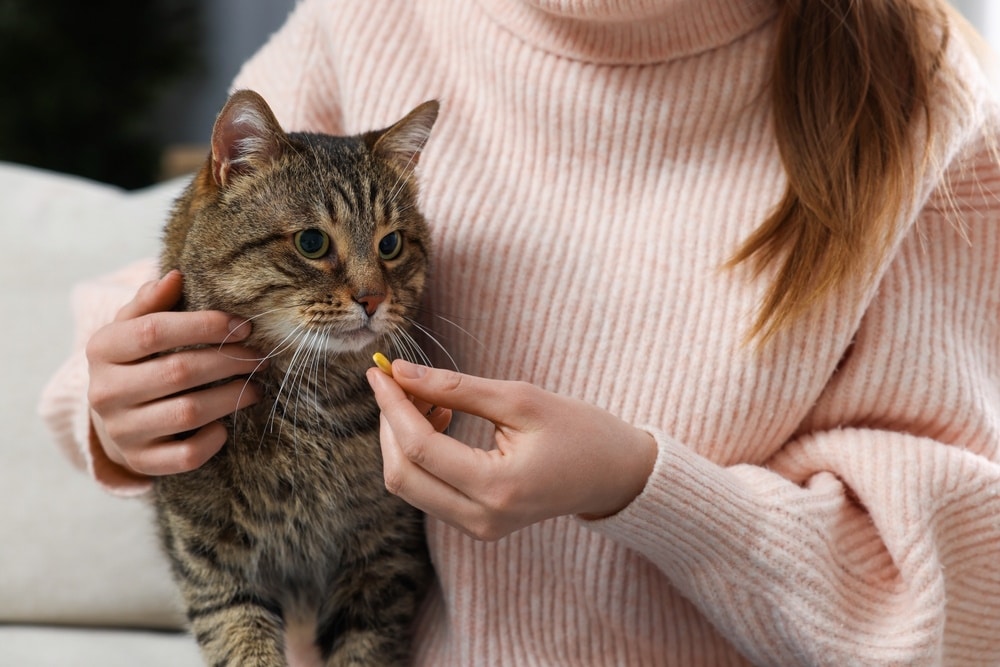
Warning: Some Other Medicines Used in Humans are Lethal to Cats
Benadryl is commercialized in several doses and forms; some of the Benadryl varieties should never be given to cats. For example, some of the liquid oral formulations of Benadryl and the gel capsule formulations of Benadryl contain alcohol and these formulations should not be used in cats.
Other formulations of Benadryl in the market have a mix of added ingredients. In particular, “Benadryl Total Allergy Sinus Headache” is of great concern because it contains acetaminophen in addition to the diphenhydramine, and the “Benadryl Extra Strength Cold and Sinus Total” is of great concern because it contains pseudoephedrine and acetaminophen in addition to the diphenhydramine.
Other Toxic Substances
Acetaminophen is toxic for your cat. For several reasons, cats are extremely sensitive to the toxic effects of acetaminophen as they cannot metabolize it. There is no safe dose of acetaminophen for cats. The toxic dose is reported as 50 to 100 mg/kg body weight, but a dose as small as 10 mg/kg body weight has produced signs of toxicity and death. A tablet of Benadryl Total has 500 mg of acetaminophen.
Pseudoephedrine has a very narrow margin of safety in cats, and relatively low doses can be toxic for your cat. The toxic dose of pseudoephedrine reported on an average-size cat is between 2.2 and 24 mg. The amount of pseudoephedrine in one tablet of Benadryl Total is 30 mg.
Other Benadryl formulations come in the form of sprays or topical creams. They should never be applied over broken skin and, in general, are contraindicated to use in cats as they tend to lick them off.

Final Thoughts
While some of the formulations of Benadryl can safely be given to your cat, others are extremely dangerous. It is never advised to medicate your cat with over-the-counter or prescription medications without consulting a veterinarian. When consulting a veterinarian, collect and provide as much information as possible about the case.
- What are the exact symptoms?
- When did the symptoms start?
- Is there a specific time when the symptoms seem worse?
- Have you noticed if something has changed in the environment?
- Have you changed the cat’s food?
- Is the cat taking any other medications? If yes, bring them or provide all the information about it.
- Has the cat been previously diagnosed with another disease?
This information will help your veterinarian get a clear history of the specific case and to safely and adequately treat your cat.
Featured Image Credit: Lightspruch, Shutterstock
